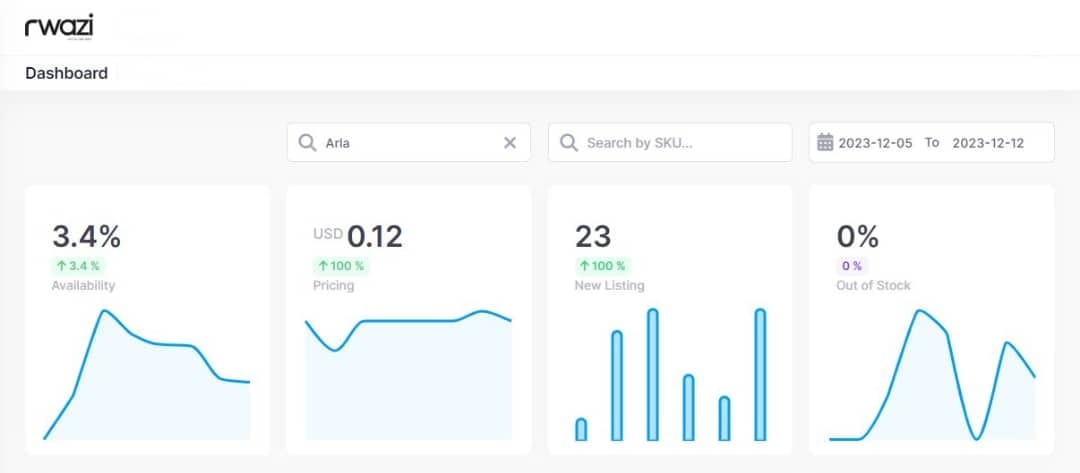
Welcome to another global intelligence briefing of Market Mosaic by Rwazi. We are excited you have continued reading our cutting-edge market insights and international economic trends. 📈 In case you haven’t yet, you can still fill out our survey to make our newsletter more valuable to you.
In this week's edition, we unpack the rapidly emerging market of last-mile delivery driven by e-commerce in the supply chain explosion. From innovative micro-mobility solutions redefining urban logistics to intelligent automation accelerating last-mile economics, we explore how consumer expectations around speed and sustainability catalyse disruption.
Let's dive into these insights together!
— Insights Team, Rwazi
Our Edition this week:
DATA SPOTLIGHT
Consumers demand faster, greener last-mile delivery

The e-commerce explosion has reshaped consumer expectations around last-mile delivery speed and sustainability. Our analysis shows over 67% of consumers now expect affordable same-day or next-day delivery to be available for online orders across most product categories.
In parallel, sustainability is a critical consideration that would sway their delivery preferences if "green" options were intelligently surfaced during checkout. This signals consumers are willing to embrace environment-friendly, crowdsourced and micro-mobility solutions for appropriate shipments.
However, brand loyalty remains fickle — 71% of shoppers in our analysis have abandoned an intended purchase due to unsatisfactory delivery costs or timing. 83% have returned items due to damage in transit or incorrect/delayed orders, straining reverse logistics networks.
As giants like Amazon invest heavily in autonomous ground vehicles, drones, and delivery stations, consumer expectations will only continue inflating. Brands must future-proof last-mile operations for speed and sustainability.
Key Insight: Providing transparent, affordable and sustainable delivery options is critical to winning over modern consumers and reducing environmental impact.
THE PULSE
Featured Chart: Last mile delivery market size: From $170B to $297B (2024-2030 forecast)

Data analysis: Rwazi
SECTOR SCAN
Innovators are redefining urban last-mile logistics

Traditional hub-and-spoke parcel delivery networks are proving ineffective in rapidly urbanizing areas with higher household densities. A new breed of startups is deploying innovative micro-mobility and crowdsourced models tailored for cities:
Startups like Veho are orchestrating crowdsourced same-day/on-demand delivery, leveraging gig workers on e-bikes, e-cargo bikes, and compact electric vehicles. Dynamically matching available spare capacity to orders through algorithmic routing optimizes efficiency.
As cities concurrently limit emissions and congestion through zoning restrictions, disruptive startups are emerging as last-mile capacity partners to major logistics players while enhancing consumer sustainability.
Key Insight: Micro-mobility and crowdsourced delivery models provide a sustainable last-mile solution for dense urban areas by leveraging local personnel and infrastructure.
OUR COMPETITIVE WATCH
Intelligent automation accelerates last-mile

While crowdsourcing models optimize speed and sustainability in dense metros, autonomous technologies and AI-powered automation will disrupt last-mile economics and customer experiences across broader geographies.
Amazon's acquisition of Kiva Systems and continuing investments in autonomous mobile robots (AMRs) like Proteus have supercharged fulfilment and delivery centre efficiency. Expect AMRs and robotic piece-picking to penetrate all nodes of the logistics network eventually.
For last-mile, autonomous delivery vehicles from Nuro, Gatik, and others are being actively piloted to automate a costly human-driven portion of the supply chain. Drones from Wing, Zipline, and Amazon's Prime Air parallelly enable cheaper mid-mile resupply of decentralized micro fulfilment centres.
Further out, intelligent connected locker systems attended receiving boxes, and in-home robotic assistants like Amazon Scout could automate the final personal delivery handoff experience in ways consumers can't yet imagine.
Key Insight: Intelligent automation through autonomous mobile robots (AMRs), autonomous vehicles, drones and robotic assistants will drive faster, cheaper and more sustainable last-mile delivery at scale.
WHAT’S HAPPENING AT RWAZI?
ICYMI: Feature on Jobtech Alliance
We were featured on Jobtech Alliance. Together, we're empowering African youth and businesses, as their expertise helps us expand our reach and connects us with new clients and even refugee communities. This collaboration unlocks valuable insights for companies while creating a network of paid data collection opportunities - a win-win for everyone! You can read the feature here.

Thank you for reading and joining us on Market Mosaic this week. We hope this edition provides valuable, actionable insights for deciding with data. 📊
You can read the more extended version of this newsletter edition with detailed insights here.
If you missed the insights in our previous editions, you can catch up on them here on our newsletter blog.
What topics would you like to see covered in our newsletter?
- Sustainability trends
- Geopolitical risks and their impact on markets
- Regulatory changes affecting specific industries
- Future-of-work trends
- Consumer psychology and decision-making
- Fintech, cryptocurrency, regulations, future of banking
- E-commerce trends, supply chain optimization
- Artificial intelligence, cybersecurity, blockchain
- Telemedicine, healthcare access, pharmaceutical trends
- Electric vehicles, autonomous vehicles, future of mobility

